- Safety: the traumatised person has to feel safe.
- Choice: they need autonomy over their own healing journey.
- Collaboration: they are not a project to ‘fix’. We should not do things to that person, but do things with them.
- Trustworthiness: we need to be transparent and consistent with the person. We need to have confidentiality, but also be clear when and to what extent some concerns need to be shared with others.
- Empowerment: It is their own journey, so we can’t take it over. We need to walk alongside people, and then empower them to be able to function without us.
-
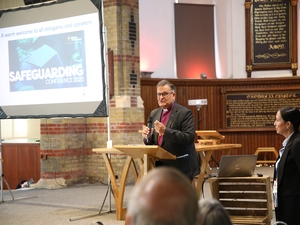
26 September 2025
Safeguarding conference examines trauma
Dozens of parish safeguarding officers, clergy and other church staff attended the fourth annual Safeguarding ... read more
-
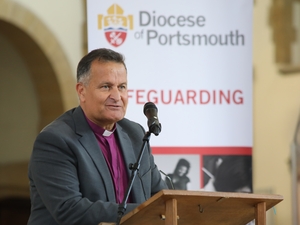
17 September 2025
Independent audit praises safeguarding in diocese and cathedral
An independent audit has praised the transformation of the safeguarding culture within our diocese and ... read more
-
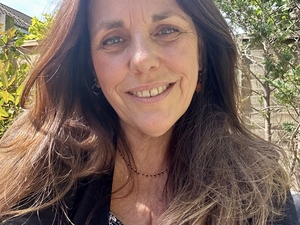
2 June 2025
Safeguarding role for parish priest
Bishop Jonathan has appointed the Rev Beth Yeandle as associate priest for Crofton parish. That ... read more
Safeguarding conference examines trauma
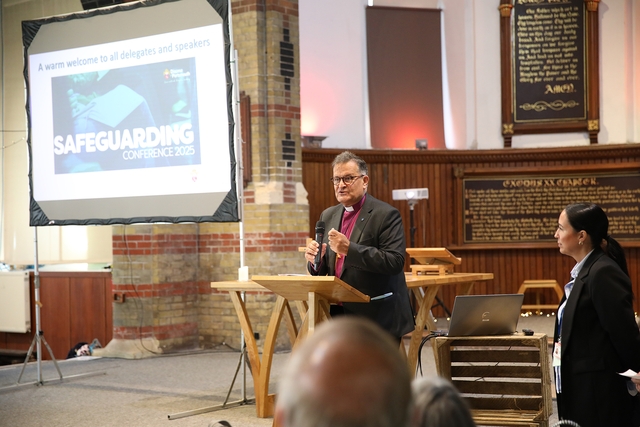
OUR diocese’s latest Safeguarding Conference examined the issue of ‘trauma’ – and how to develop a trauma-informed Church.
Dozens of parish safeguarding officers, clergy and other church staff attended our fourth annual Safeguarding Conference, which was held at St Luke’s Church, Southsea.
They heard from speakers about what trauma is, why it matters, and about the theology of trauma. They also heard about aspects of mental health and about personal wellbeing. Our Head of Safeguarding Emily Hassan also briefed delegates about the conclusions of the INEQE safeguarding audit of our diocese and cathedral, and Bishop Jonathan shared his thoughts.
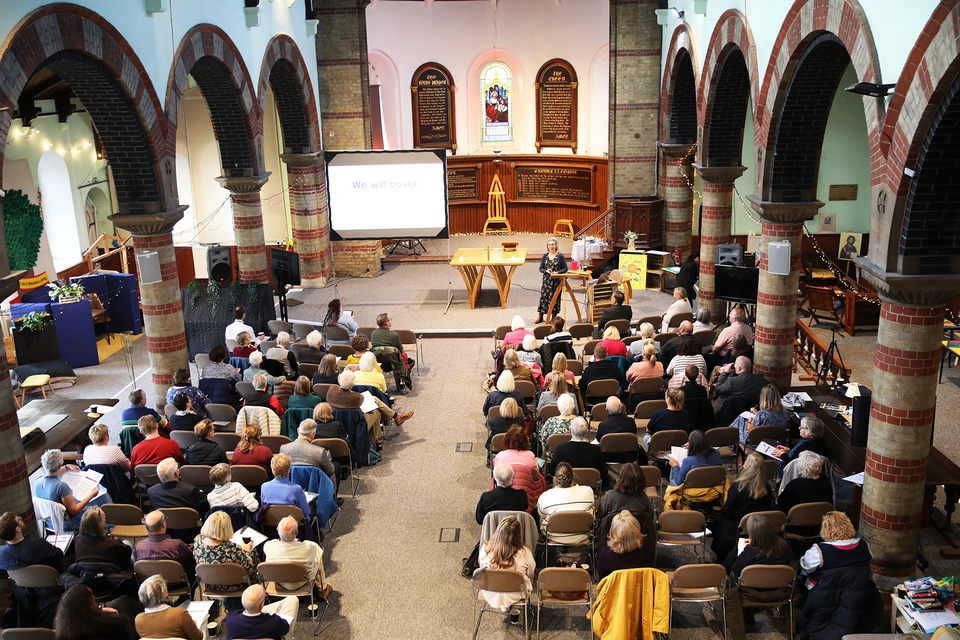
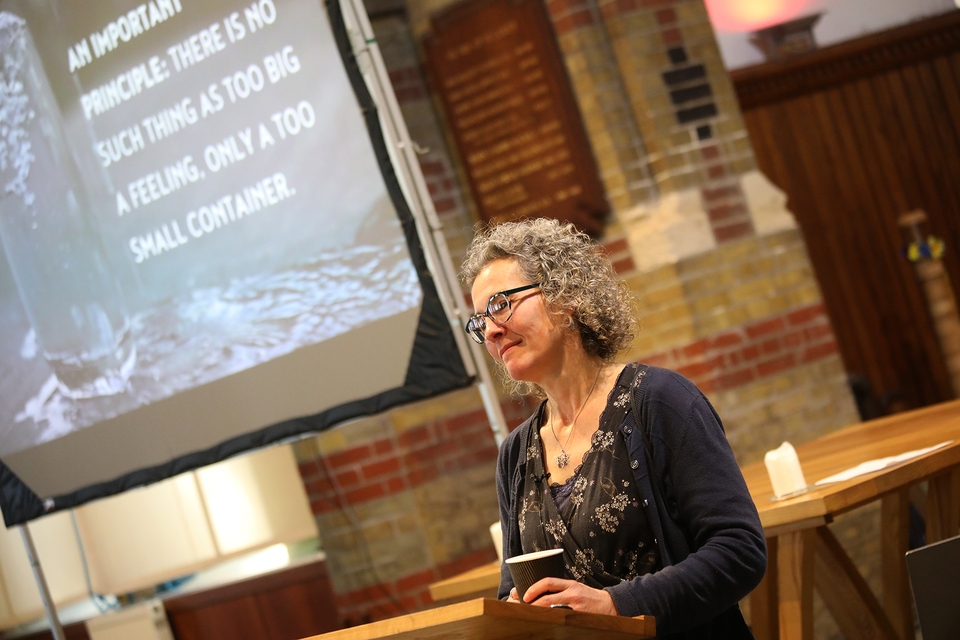
Delegates heard from from Dr Kathryn Whyte, clinical psychologist and clinic lead at Beacon House therapeutic services in Chichester. She explained about different types of trauma, including pre-birth events, developmental trauma, post-traumatic stress, complex trauma, marginalisation and religious trauma.
She said that periods of moderate stress are not in themselves a problem. They help us to prepare for adult life, helping us to work out how to solve problems, and to repair ‘ruptures’ in our lives. But she explained that prolonged, unpredictable stress without the presence of a safe adult – abuse, neglect or an unresolved traumatic incident – could lead to developmental trauma. Children who have experienced this may have fight or flight responses, can disconnect from real life, can struggle to manage emotions, or can show their stress through their behaviour.
Kathryn said that a trauma-informed approach by family, society and church can all help recovery. What can help is a safe, predictable, consistent environment, where someone doesn’t feel judged and knows they are loved. Those who have suffered trauma may not need immediate reassurance – what can help is first to accept that their experience was a traumatic one. They also need to know that when things go wrong, forgiveness and repair can translate into still feeling welcome.
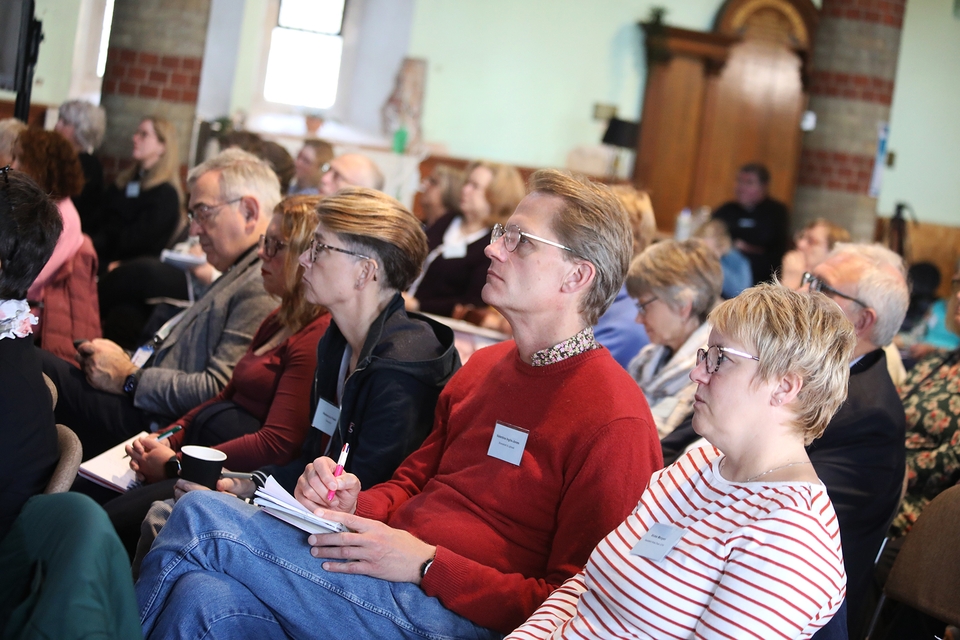
Delegates also heard from Joanna Douglas, an SEMH school teacher who is studying for a PhD in the theology of trauma. She talked about Imago Dei, the idea that humankind is made in the image of God, which is fundamental to our sense of identity. For those who have suffered trauma and feel broken, it is often difficult to imagine how that broken self can really be made in the image of a perfect God.
It is compounded by our understanding of sin – many trauma survivors feel sinful, even if the trauma was not their fault. That can lead to a sense of shame, which forces the person into a deep and concealed silence about what has happened. Trauma survivors may even have cried out to God for the trauma to cease. So when it doesn’t stop, they conclude that God is unable to do so, God chooses not to stop it, or that God doesn't exist.
However, Joanna explained that we actually worship a traumatised God. We tend to portray the Cross as a victorious moment when Jesus brought salvation, but his trial and execution were traumatic events. Holy Saturday is a day of death that resonates for trauma survivors. And on Easter Sunday, Jesus could have been resurrected with a perfect body. But the risen Christ appears with visible wounds. His healing came in an imperfect form.
That means that if a trauma survivor gets a chance to be reconstructed, it means – like Jesus – they don’t go back to the pre-trauma state, but become a new person with post-trauma growth as integral. That reconstruction has to start with an acceptance of the trauma itself, but not accepting that is your whole identity. Christians trying to engineer immediate ‘healing’ for that traumatised person may also be counter-productive – it can take a long time walking alongside them for change to happen.
Joanna explained that a trauma-informed Church is one where people can find the following five things:
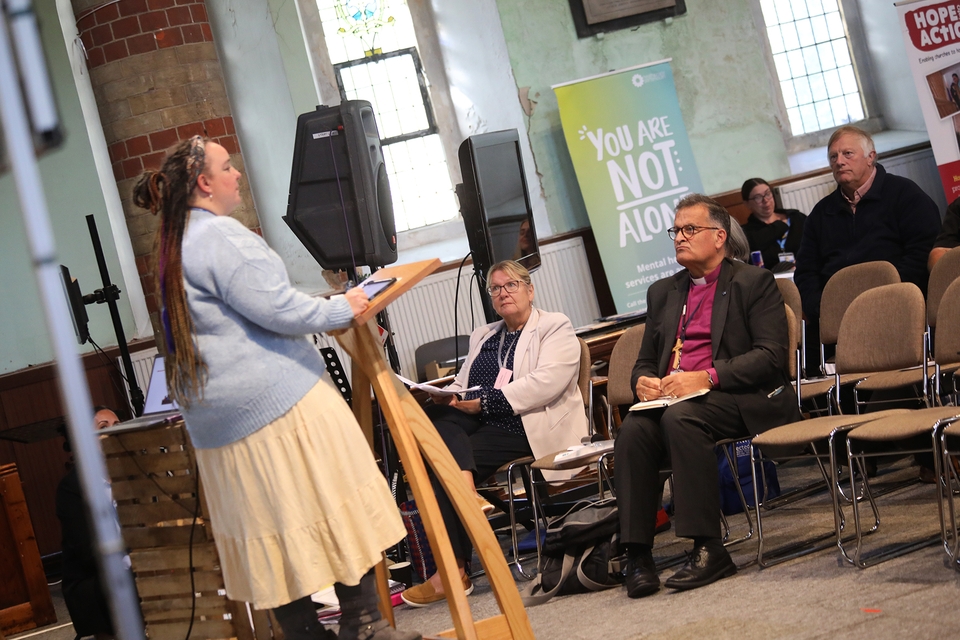
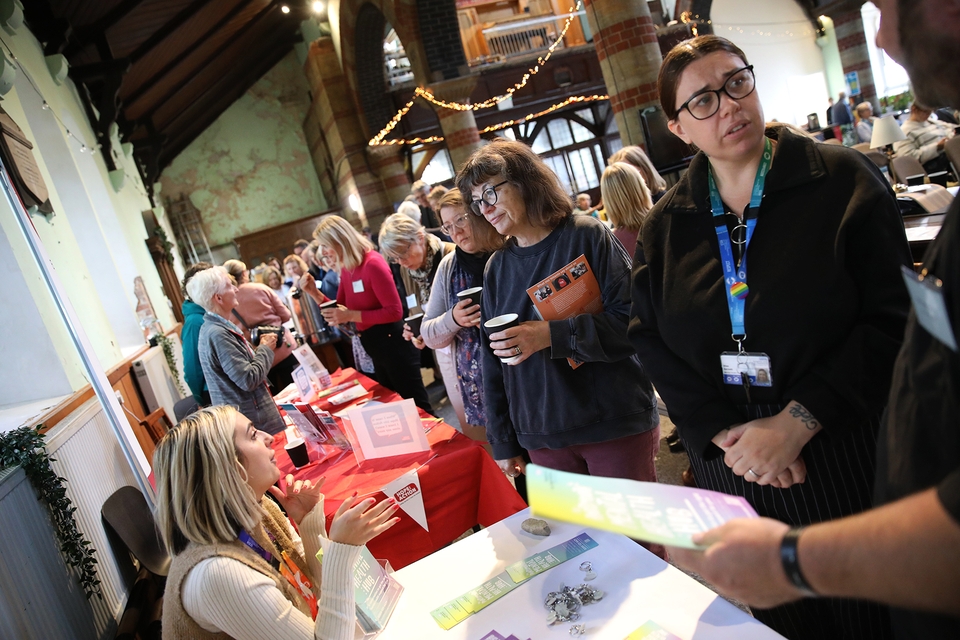
Among the other speakers was Mandy Wiltshire, from the Workplace Wellbeing team at Solent Mind. She talked about the two most common mental health issues – depression and anxiety. She explained some of the triggers that lead people to become depressed or anxious, and advised on ways in which we could help such people. That includes signposting them to professionals and support lines that can help.
Her colleague Chris West took delegates through five ways in which they could preserve their own wellbeing, which include: a sense of connection with others; being active; taking notice of the world around us; giving our time to others; and keeping on learning.
Angela Etherington, who is a mental health consultant and also a Parish Safeguarding Officer in one of our churches, talked about how to understand personality disorders, which can lead to emotional dysregulation, unstable relationships, impulsivity and self-harm. She outlined some ways in which those in our congregations could help.
And Bishop Jonathan rounded off the day with some reflections on theology and politics. He reminded us that Jesus’s language was never coercive, always invitational, and encouraged us to live incarnate lives, walking alongside those in pain and offering hope. He also wanted to address the political choices that our society seems to have made – that mental health appointments and referrals have become so much more difficult. He urged our worshippers to be at the forefront of protesting on behalf of those who are the most vulnerable in our society.
The conference also included stands from charities and support organisations that can help our churches to help others. They included teams from Solent Mind, which provides support for those with mental health concerns, and Hope into Action, which helps churches to provide homes for the homeless.